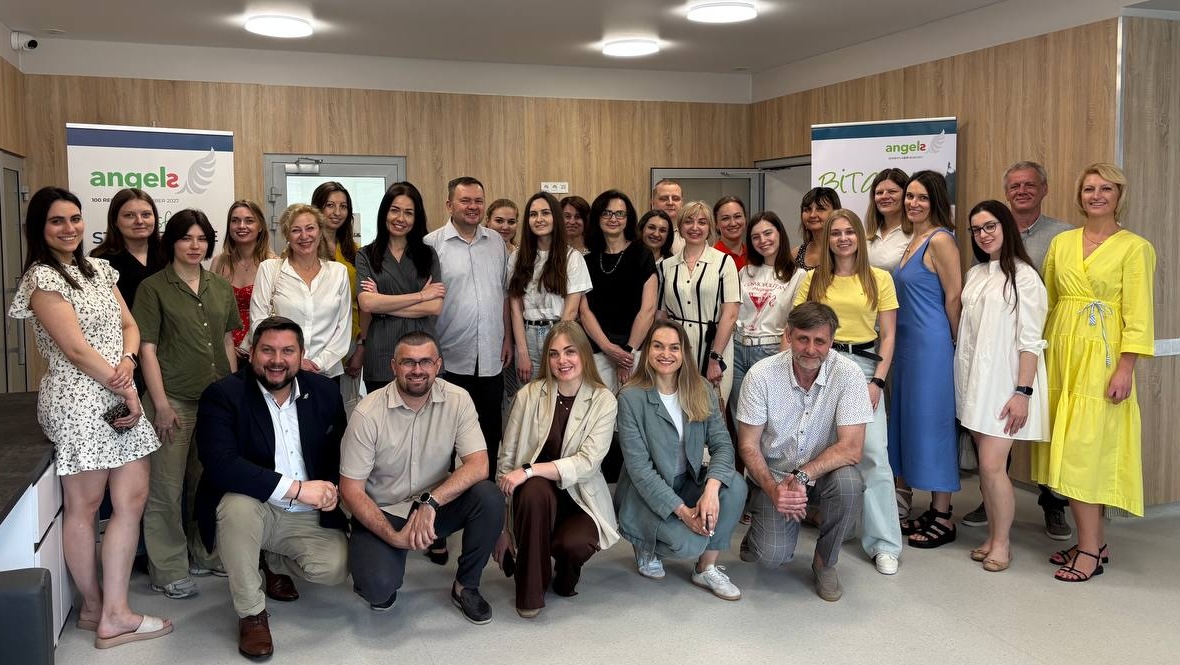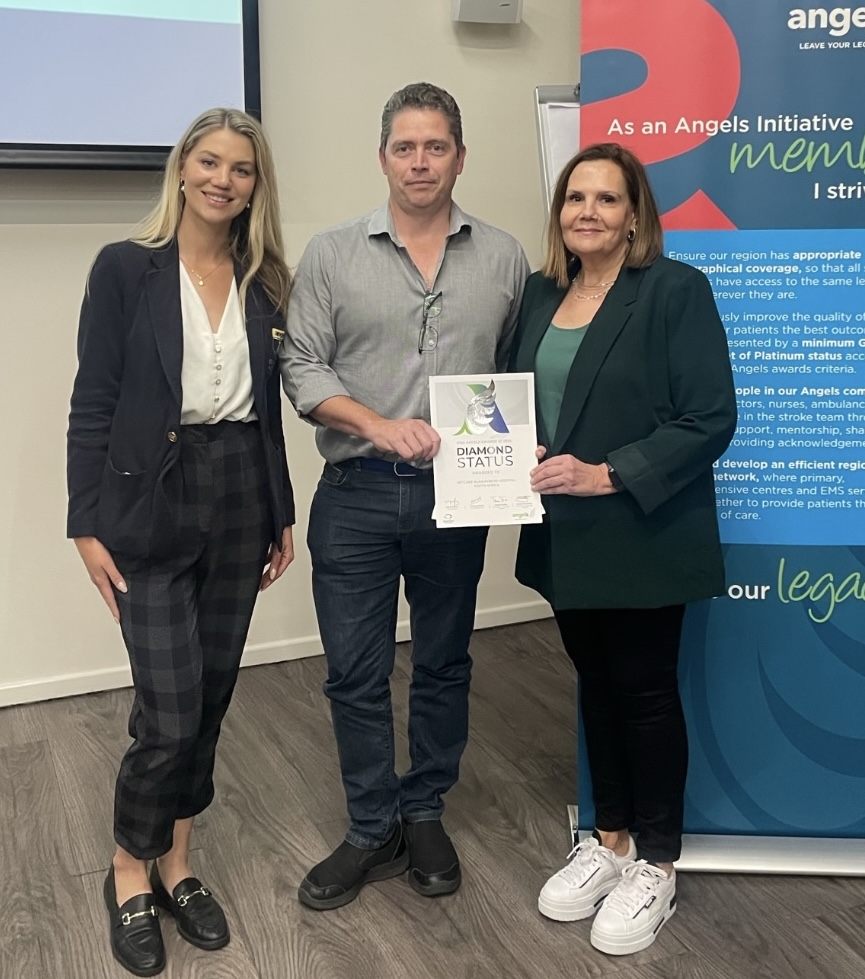
Nell'agosto del 1979 una fotografia appariva su un giornale locale di un quattordicenne che faceva finta di ascoltare il cuore di un collega pre-scuola. Nel testo di accompagnamento, il bambino è stato identificato come "medico" Carstens Charl. Professia o destino? Decidi, perché lo stesso Dott. Charl Carstens ora dirige il pronto soccorso di un grande ospedale privato con una foto cartolina di una delle sette meraviglie della natura.
L'ospedale Netcare Blaauwberg si trova a Bloubergstrand, un sobborgo marino della città del Capo, famoso per la sua classica vista su Table Mountain. Quando è stato aperto nel 2007, ha subito fatto la sua storia perché la sua unità di emergenza era la prima in Sudafrica ad essere creata da specialisti di medicina d’emergenza.
La medicina d’emergenza come specialità è stata introdotta in Sudafrica nel 2003 dal Dott. Clive Balfour. Charl aveva incontrato il Dott. Balfour per caso, durante una rotazione in un ospedale del Lake District dell'Inghilterra, ed è stato incoraggiato a tornare in Sudafrica e a diventare uno dei primi gruppi di 10 medici sudafricani a completare il corso di quattro anni. Un collega residente ha istituito il pronto soccorso presso Netcare Blaauwberg e Charl, dopo aver lavorato lì part-time nel 2007, si è unito come consulente a tempo pieno nel 2008.
Sul suo orologio, l’ospedale è stato riconosciuto dalla Trauma Society of South Africa (TSSA) come centro traumatologico di livello III nel 2018, quindi ha estratto tutte le fermate per ottenere la certificazione del centro traumatologico di livello II nel 2023.
Quando il precursore dell’Iniziativa Angels ha iniziato a operare in Sudafrica nel 2014, Netcare Blaauwberg è stato tra i primi ospedali ad avere uno stato pronto per l’ictus. Nel 2018 un Consulente Angels ha condotto una simulazione presso l’ospedale e il ictus kit e le liste di controllo Angels sono entrati a far parte del protocollo per l’ictus. Entusiasmo per il programma sull’ictus tuttavia segnalato dopo che il Covid ha interrotto il sistema sanità e l’ospedale ha perso il suo neurologo e il suo campione dellictus alla malattia. Ma tutto questo stava per cambiare.
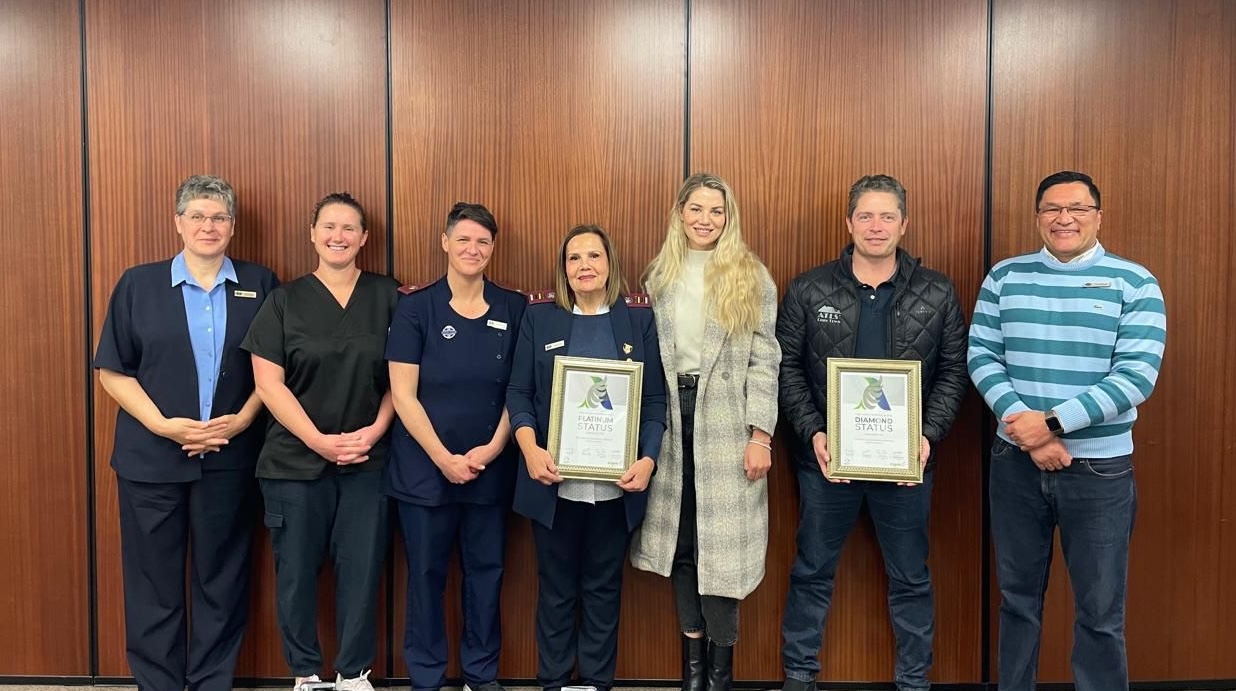
Il signore Claudette Lotz non ha mai considerato una carriera in alcun campo diverso dall’assistenza infermieristica. "Sai," dice lei. Ha conseguito la prima laurea presso l’Università di Johannesburg e, dopo un anno in UTI, è entrata a far parte del gruppo Netcare come infermiere traumatologica. Una routine non gradita la ha tenuta al pronto soccorso. "Non ho mai lavorato in reparto", dice.
Quando i suoi figli sono diventati nuotatori provinciali, la sua carriera ha preso un posto sul retro. Per quasi due decenni ha lavorato solo occasionalmente, ma nel 2019 si è trasferita a Cape Town e si è preparata a tornare all’assistenza infermieristica a tempo pieno. Nello stesso anno ha conseguito una laurea post-laurea in educazione infermieristica presso l'Università di Stellenbosch; durante la pandemia l'anno successivo ha conseguito una laurea post-laurea in sanità pubblica e lo scorso dicembre si è laureata in scienze infermieristica. Nel settembre del 2022 è diventata responsabile di unità del reparto di DE di Netcare Blaauwberg e meno di un anno dopo l’ospedale ha vinto il suo primo WSO Angels Awards d’oro.
Al suo arrivo era già in atto un sistema per la la cura dell'ictus e la dott.ssa Carstens era immediatamente a bordo, afferma. Riconoscendo che il monitoraggio della qualità è stato la chiave del miglioramento, Claudette ha incontrato Sr Zasskia Wiese, il coordinatore nazionale dell’ictus per il gruppo Netcare, per imparare a caricare i dati dei paziente nel registro del miglioramento della qualità della la cura dell'ictus, RES-Q.
"All'inizio sembrava impossibile", dice. "Ma una volta iniziato, vedi che può essere fatto." Michelle Cronje, infermiere clinica specializzata in DE, ha iniziato la pratica di caricare i dati relativi alla la cura dell'ictus come priorità assoluta ogni mattina. Quando i numeri hanno dimostrato che i tempi door-to-needle potrebbero essere più rapidi, il Consulente Angels Bernise Schubert ha facilitato la formazione sulla fase iperacuta. Quando il tempo per raggiungere la radiologia ha presentato una sfida, hanno chiesto al Servizi d'emergenza di portare i pazienti colpiti da ictus direttamente alla TC e di eseguire i test in corso. Un gruppo di Whatsapp che collega i giocatori chiave si è rivelato estremamente prezioso e supporta la prenotifica in modo che siano consapevoli del paziente dal momento in cui convocano l'ambulanza fino a quando arrivano alla TC.
Il risultato di questi sforzi è stato un secondo riconoscimenti oro nel terzo trimestre del 2023 seguito dal primo riconoscimenti di platino nel quarto trimestre. Ora stanno per ricevere il secondo riconoscimenti diamante, riconoscendolo come un segnale di eccellenza nella la cura dell'ictus.
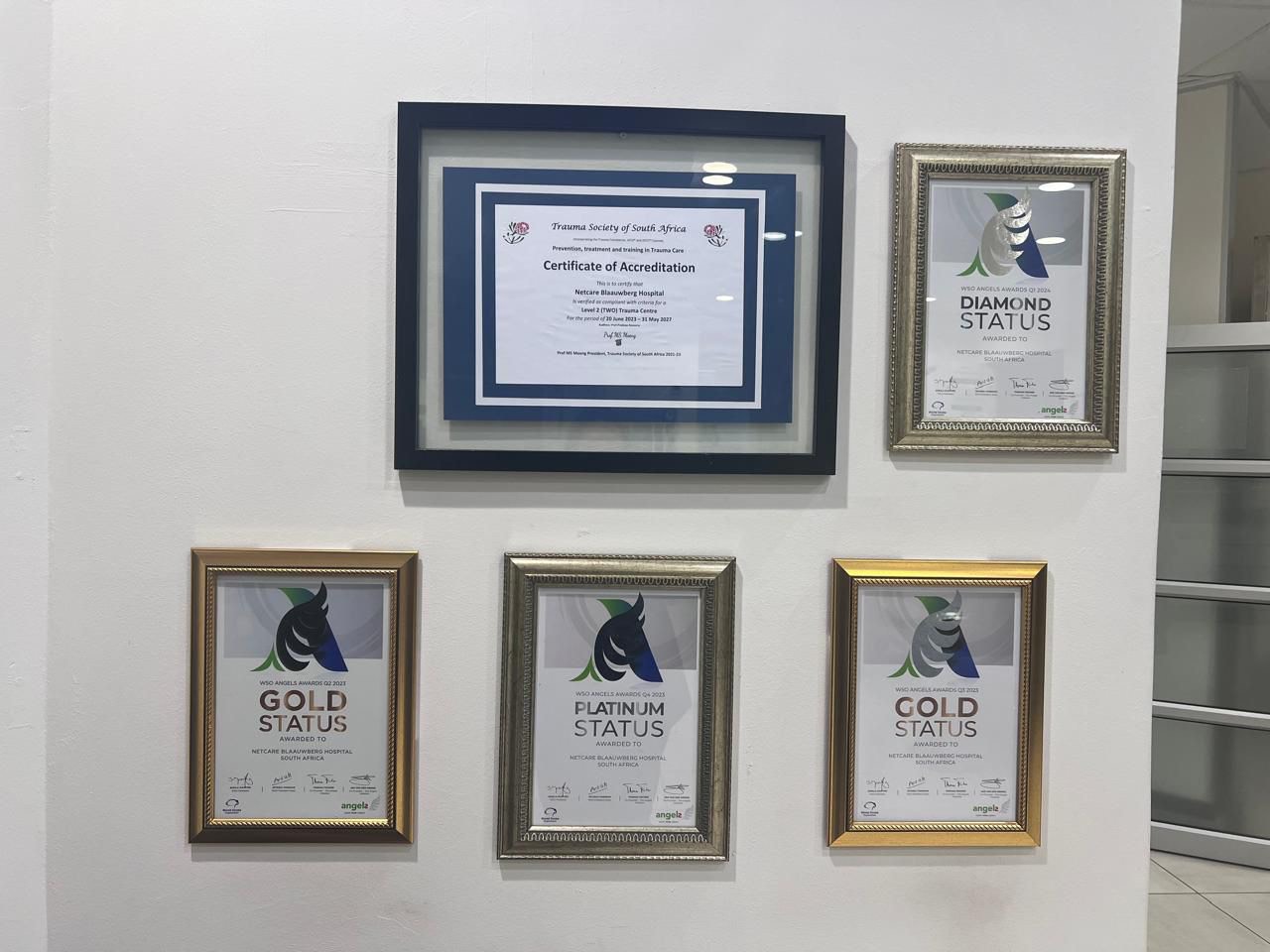
C’è stato un cambiamento nell’atteggiamento tra i medici nella DE, afferma Charl. Cercano attivamente i motivi per trattare l’ictus ischemico con la trombolisi e fanno tutto il possibile per ottenere il consenso della famiglia per questo trattamento che altera la vita. Allo stesso modo, l’entusiasmo di una giovane generazione di infermieri e il loro entusiasmo quando sono testimoni dell’impatto del trattamento sono infettivi.
"Iniziate a caricare i vostri dati, iniziate a fare il primo passo base", è la risposta di Claudette quando chiedete quale consiglio ha per gli ospedali che devono ancora impegnarsi a migliorare la cura dell'ictus.
"Prendere il primo passo può essere difficile", aggiunge Charl. "Ma hai bisogno di quella persona che è pronta a accendere il fuoco. Poi tutto cade in posizione."
Sono entrambi persone, sebbene in modi diversi. Charl ha la testa fredda che dice sia una caratteristica necessaria per un medico di emergenza. "Il PS non è posto per un cowboy; hai bisogno di una testa fredda per gestire le situazioni di stress caotico e creare un ordine per avere un buon esito." È un papà giovane che si destreggia tra lavoro e vita familiare e cerca ancora di giocare a golf.
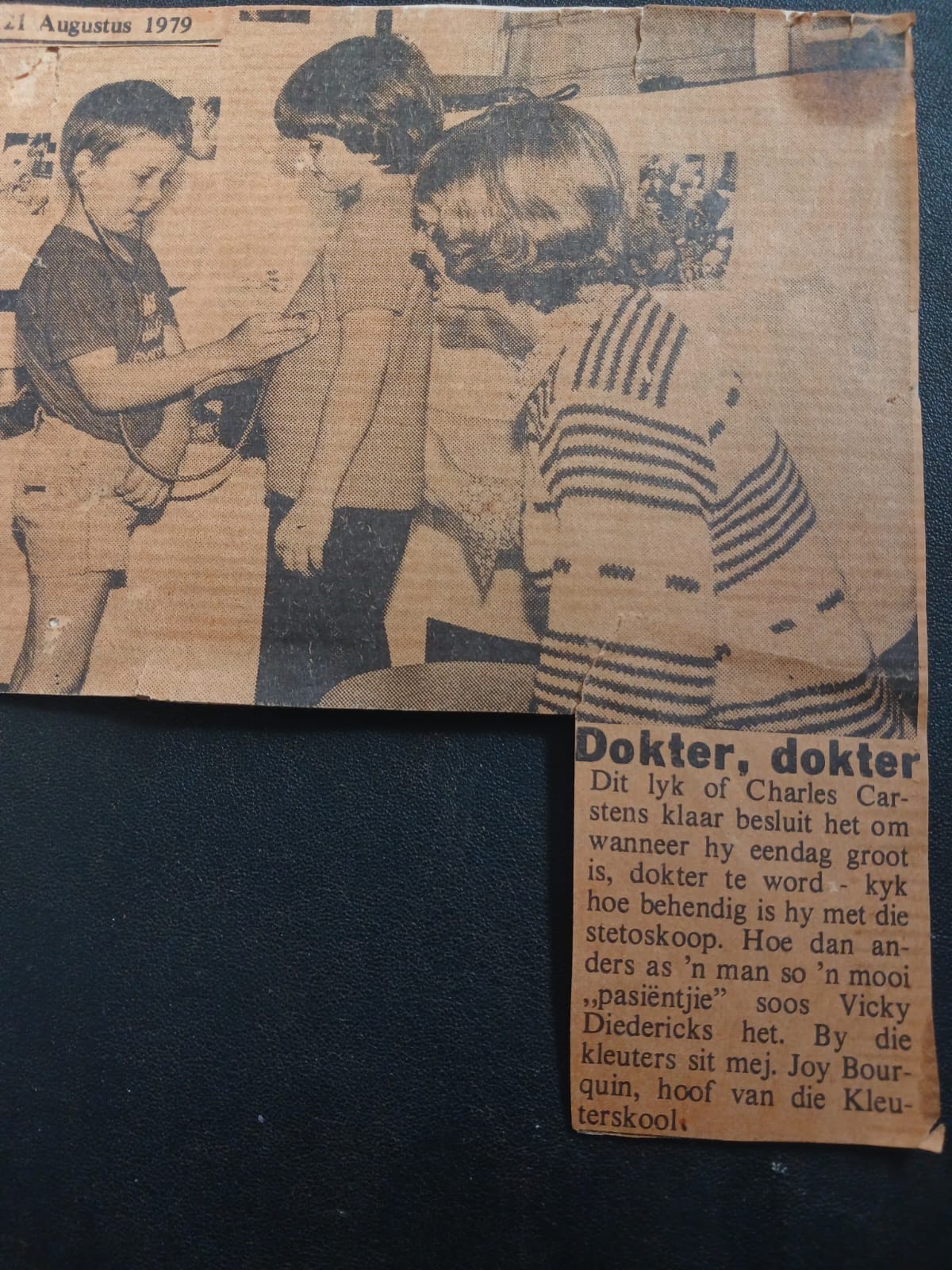
In una fase della vita diversa e dopo aver regolato la sua carriera in un campo che ama, Claudette trova difficile strapparsi lontano dal lavoro. È probabile che lavorerà fino alle 10 o 11 ore di notte, soprattutto se l’unità è occupata e il suo team ha le mani piene. "Non riesco a stare in piedi e a guardare qualcun altro lottare, dice. "Un leader deve far parte del suo team."
Spinti ad avere successo e immensamente orgogliosi del loro ospedale, Charl e Claudette stanno ora esplorando modi per rendere il loro diamante ancora più luminoso. Stanno parlando con il team di radiologia dell’uso di DWI-FLAIR Mismatch, una tecnica di RM per determinare quali pazienti con tempi di inizio dell’ictus sconosciuti sono candidati alla trombolisi.
Un protocollo per l’ictus per gli ictus da risveglio e l’arrivo tardivo dei pazienti consentirà di salvare molte più vite. Potrebbe anche aver salvato quello dello zio di Charl che sarebbe arrivato troppo tardi dopo aver subito un ictus grave. Allora non si poteva fare nulla per lui, dice Charl. "Forse avremmo potuto fare qualcosa ora."

